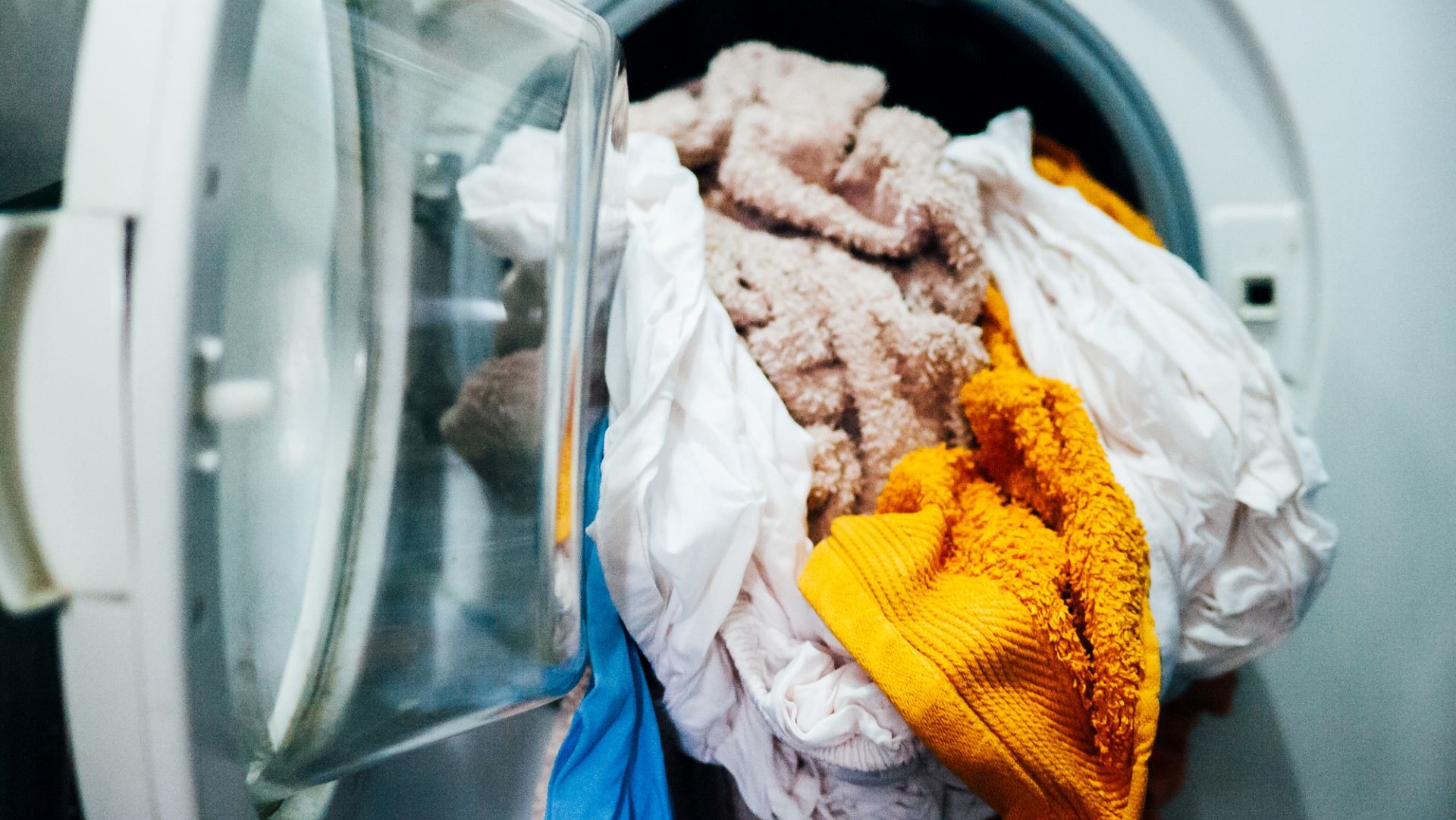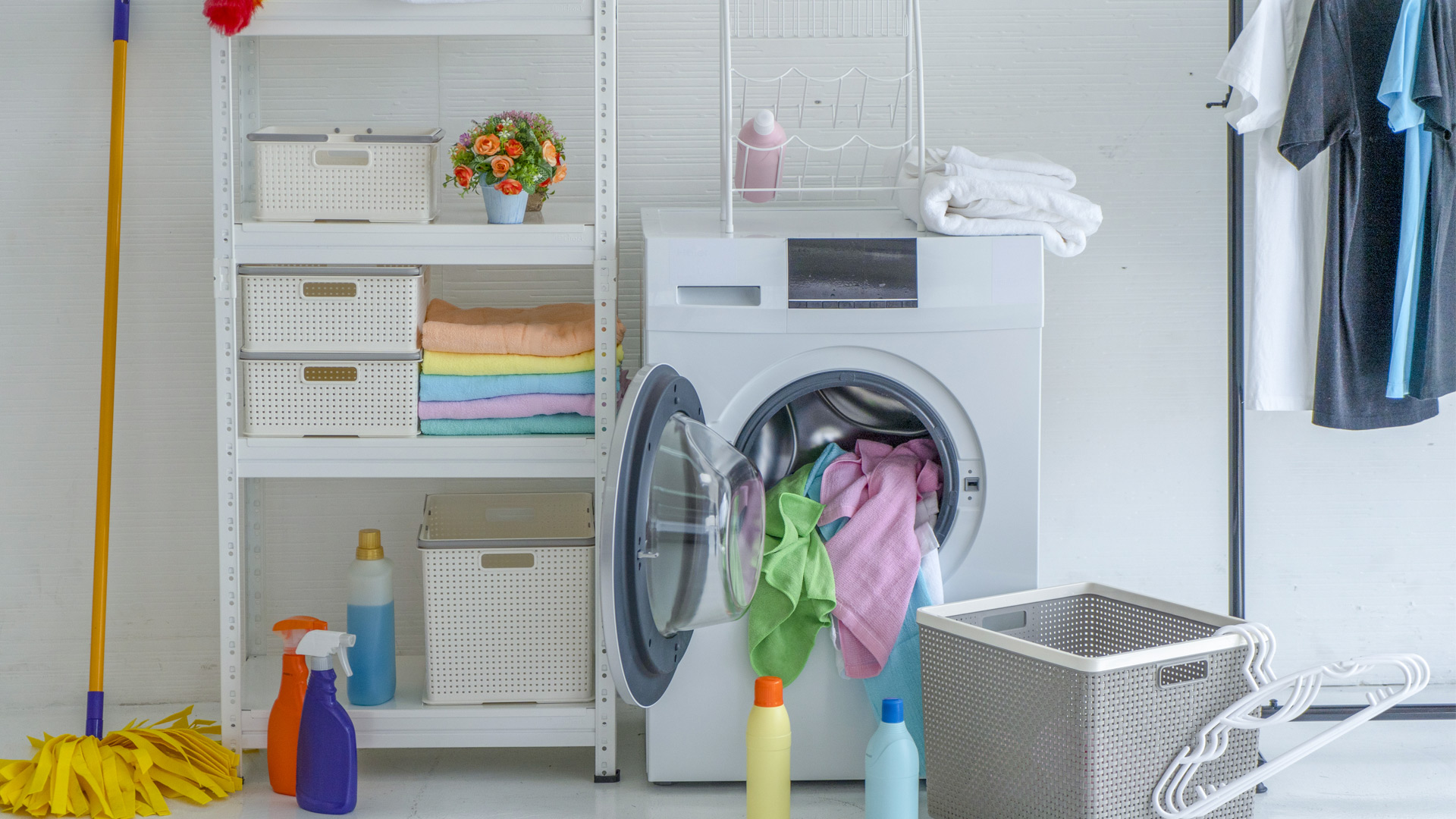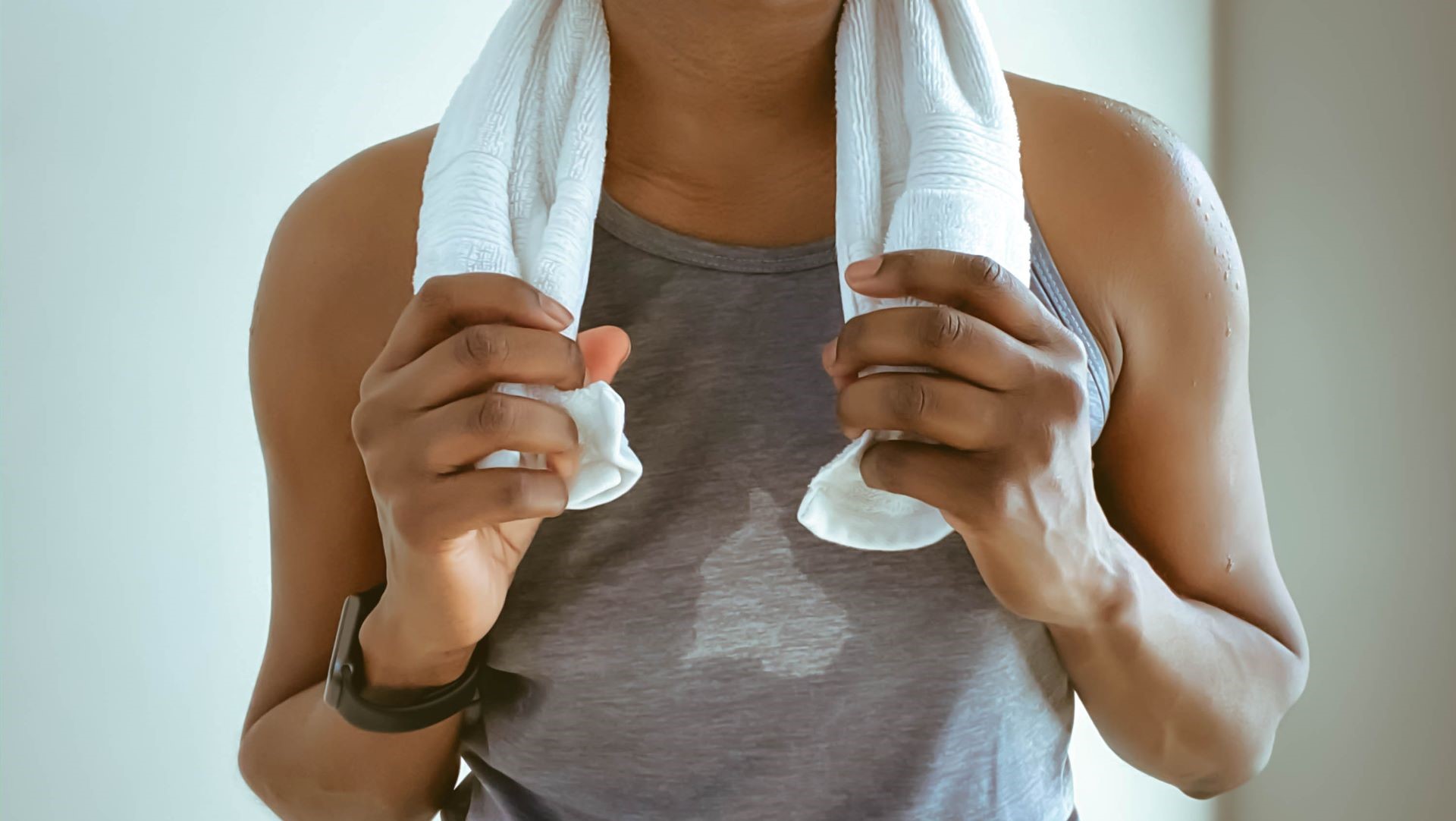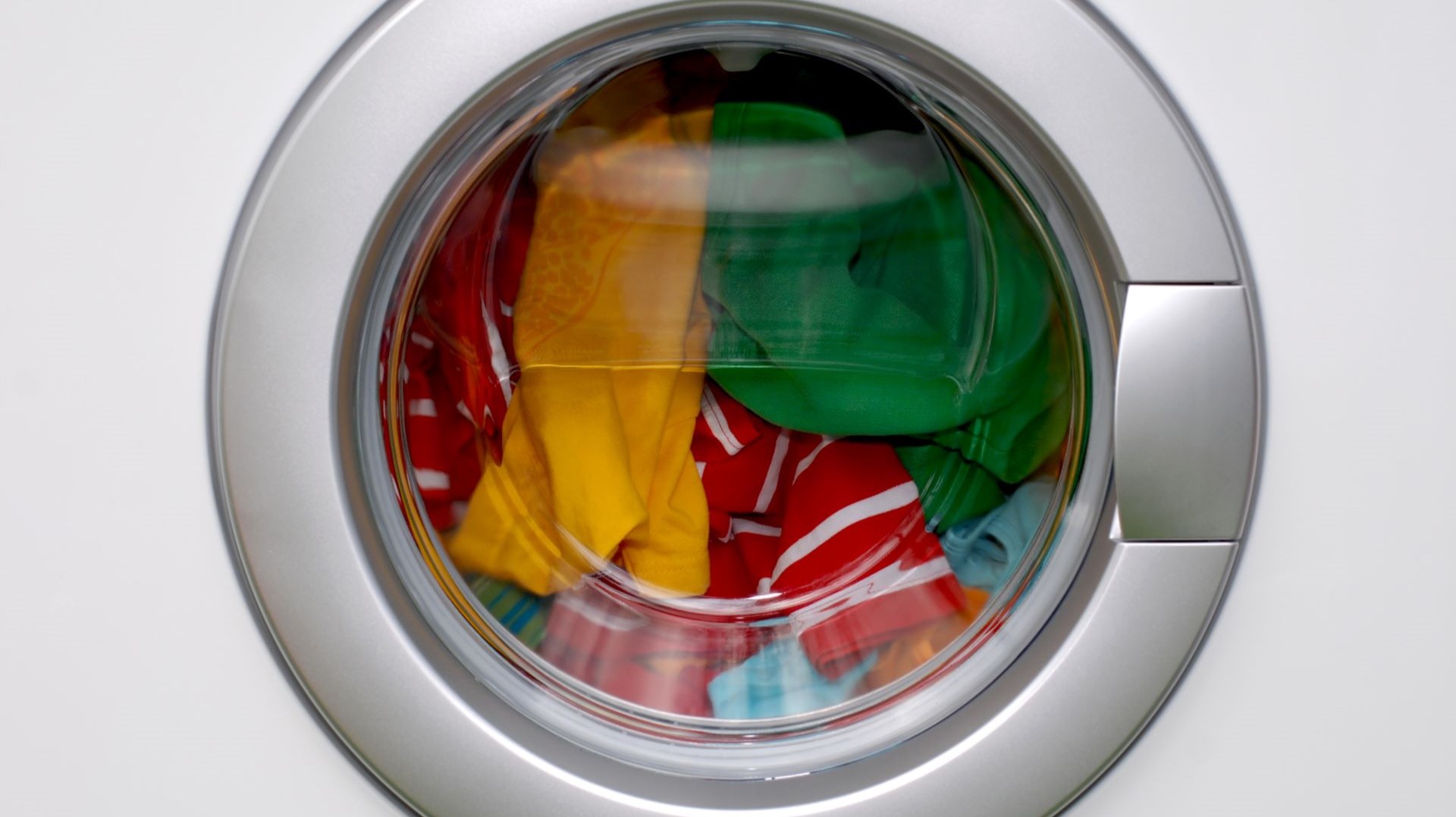5 things to avoid with the quick wash cycle
When you should and shouldn’t use the quick cycle

When we’re short on time and have a bulging laundry basket, opting for a convenient, quick wash cycle is tempting. The best washing machines have a quick wash cycle, which usually takes between 15 and 45 minutes, depending on your make and model. A quick wash can save time and energy and seems to get the job done, so what’s the issue?
Vivien Fodor, Laundry Category Manager at Indesit, understands the convenience of a quick wash. “It’s a no-hassle way to get those much-needed items clean and fresh quickly, whether the night before or even the morning of. Having a washing machine with a quick wash cycle makes life easier.”
However, a quick wash cycle isn’t always the right option. In fact, if you’re using it for full loads, there’s a chance your clothes aren’t as clean as you think. Plus, it raises the risk that you’re leaving residual soap in your clothes, which can cause irritation to sensitive skin and even damage your clothing.
Find out when you should and shouldn’t use the quick wash cycle on your washing machine.

5 things to avoid with a quick wash cycle
1. Washing large, dense or bulky items
Bulky items like comforters, sleeping bags, or large plush toys may retain more water and detergent if there isn't enough time to rinse them and extract all the moisture. This can lead to detergent build-up, which can cause irritation to sensitive skin. It can also cause extra wear and tear on your clothes.
“Quick washes don’t allow enough time for fabric, particularly heavy or bulky items – like denim, towels, or duvets – to separate and have a thorough clean,” says Fodor. “We’d recommend washing these on a designated cycle that allows the water and detergent enough time to penetrate into the thicker fabrics.”

2. Washing heavily-soiled items
A quick wash cycle won’t allow enough time for a thorough cleaning of grease stains, caked-on mud, ground-in dirt, or other heavy soiling. These heavy, set-in soils need the longer agitation and soaking your regular or heavy-duty cycle offers.
Sign up to receive the latest news, reviews, buying guides and deals direct to your inbox
“For those items with more stubborn or embedded marks or stains, like a muddy sports kit or soiled baby clothes, a longer cycle is the best option to get optimal cleaning results,” says Fodor

3. Washing delicate fabrics
As with bulky or dense items of clothing, a quick wash doesn’t have enough rinse time to remove detergent from delicate fabrics such as silk, lace, or satin. It’s always best to use a delicate setting for these clothing items, as the heavier agitation of a quick or regular wash can damage their finer fibers over time.

4. Washing items that are particularly odorous
Think before you chuck your sweaty gym gear or smelly socks in a quick wash. The shorter cycle is unlikely to fully rinse sweat, bacteria, and other odor-causing residues from clothes like gym wear, underwear, socks, dish towels, or baby items. The full rinse time of a normal or sanitize cycle works best for odor removal and a much more hygienic clean.

5. Washing a full load of laundry
Reviews
Whirlpool 24" Stainless Steel AI Dishwasher Review
Napoleon TravelQ PRO285 Portable Gas Grill review
Dreame L40 Ultra Robot Vacuum Cleaner and Mop review: almost hands-free cleaning
GE Profile Smart Mixer with Auto Sense review: a powerful, thorough mixer
Echo eForce DPB-2500 review: a leaf blower as a snow removal tool?
DPAS-2100 + Pro Paddle Attachment review: a new way to remove snow this winter?
Midea MAD53109APK 5.5QT Air Fryer review: a small, simple, and highly effective option
Eureka J15 Pro Ultra Robot Vacuum review: hands-free cleaning for busy families
A quick wash cycle uses less water, time, and energy. Great for your busy day and your energy bills, but not ideal if you’re trying to wash a full load of laundry. “Putting in a full load on a shorter wash is unlikely to give enough time to clean every item,” says Fodor. “The different wash cycles are there to protect clothes whilst keeping them clean, so we would recommend choosing the right cycle for your load, especially if you have lots of laundry to get through.”
Quick wash cycle: FAQs
Is it OK to wash on a quick wash cycle?
Yes, there are many instances where a quick wash cycle is ideal. For example, if you’re in a hurry and need that outfit or uniform washed quickly, a speedy cycle is the height of convenience. “We’ve all been there!” says Fodor. “It’s the night before, and your child has just announced that they have gym class at school tomorrow. Or perhaps there’s a last-minute meeting in the office, but your go-to work outfit is in the laundry basket. Quick cycles have got you covered when you need to remove light stains and freshen up laundry that doesn’t need a deep clean.”
If your priority is to cut down on your utility bills, then a quick wash can help you save on water and energy; it’s better for the environment. According to Fodor, quick wash cycles can reduce your energy use by as much as 60% and your water consumption by 40%. Just be sure to use it when it’s most needed instead of your go-to washing cycle.
Can I use quick wash for bed sheets?
It’s best not to. A quick wash won’t be enough to rid your bed sheets of the bacteria and allergens that can build up, such as sweat, fungi, body oil stains, pet dander, and dead mites. You need a long, hot wash for bed sheets, particularly if you or a family member has been ill.
“The optimal temperature for killing bugs and germs is around 140 degrees Fahrenheit (60°C)”, says Fodor. “When washing clothes or bedding, it is much better to go for a longer cycle, at a hotter wash, for peace of mind.”
How long is a quick wash cycle?
How long a quick wash cycle lasts depends on your machine type and manufacturer. According to AO.com, a UK online retailer, most quick-wash programs are around 30 minutes long. Some washing machine manufacturers offer speedy washes at just 15 minutes, while others can take up to around an hour. Your washing machine manual should detail the durations of all the washing cycles available.
Final thoughts
The quick wash cycle on washing machines is tempting when you're short on time. However, it's not always the best option. Don't use quick wash for large items, heavily soiled clothes, delicate fabrics, smelly clothes, or full loads, as it won't clean them thoroughly.
Quick wash is best for lightly soiled items when you're in a rush or looking to cut down on energy and water consumption. It's best not to use quick wash for bedsheets as it won't remove germs, bacteria, allergens, or mites.

Joanne Lewsley is a reputable freelance writer specializing in evidence-based health and lifestyle content. With a background in journalism and extensive experience working for known brands, Joanne rigorously tests and evaluates home gadgets. Her passion for writing is complemented by her love for the outdoors and live music.

